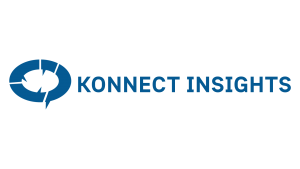Software that tracks and examines online conversations regarding your brand, a particular subject, your competitors, or anything else that is pertinent to your business is called a social media listening tool.
It gathers mentions of chosen keywords and aids in their analysis by marketers. It can include posts and comments on blogs, forums, and websites where the information is made public, so it doesn’t simply track social media.
With a large number of mentions and insights, social listening will help you track how well your firm is performing and what your consumers think of your brand.
Although it’s important to grasp what social listening is, understanding how it functions is considerably more important. Social listening tools gather information about your brand and that of your competitors that is publicly available online.
Depending on the requirements of your organization, you can collect data over a predetermined period or in real time. Moreover, you have the option to limit mentions to a specific set of languages or nations.
To gather as much pertinent information as possible, the research is focused on several keywords or phrases (such as the name of your business or product). Also, you can choose to omit terms that will undermine your objectives.
Following that, mentions are examined to determine the writers’ feelings and categorized as good, negative, or neutral based on tone and other variables.
You can also include categories (for example, packaging, price, and availability) to determine what topics your customers most frequently discuss while mentioning your brand or product online.
Some of the best social listening tools are –
- Konnect Insights
- Tweetdeck
- Awario
- Buffer
- Keyhole
- Hootsuite
- BuzzSumo
- HubSpot
How Can Personalization Change the Game in Cold Outreach?
With so many businesses competing for customers’ attention at once, the value of personalization in sales outreach has been increasingly apparent. But, simply personalizing with, “Hello, <the first name>” might not be sufficient anymore.
Sales representatives now use personalization in a very different way if they have a 10% conversion rate from cold outreach (based on the performance of the Sales Rocks sales team in Q4 2022).
To begin with, hyper-personalization begins at the very first stage of outreach, when potential customers are identified and targeted for product or service promotion.
In-depth research enables sales teams to learn a wealth of pertinent information, in addition to the fundamentals like the firm name, website, or LinkedIn profile, such as the location, number of employees, revenue range, and web technologies employed.
It’s a good idea to include these details in the text to make it more relevant and personalized, but chances are that your potential customers have already seen it.
So let’s consider hyper-personalization from a different angle.
While it’s a wonderful notion, it’s impossible to do, or at the very least, it isn’t scalable, to hyper-personalize every cold email you send. Marketers are unable to customize every email based on their experiences.
Most marketers and salespeople carry out mass cold email campaigns. This implies that part of it is being stringent about how much time they spend crafting and customizing the messages they deliver.
Not every prospect can or ought to receive the same level of focus. The degree to which an email should be tailored greatly depends on the lead and how competent they are.
Lead scoring is a tool you can use to determine this.
Lead scoring is a method of estimating a prospect’s likelihood of conversion. This score can be determined using a variety of demographic and lead intelligence indicators, including a prospect’s company size, job title, and actions taken or not taken. Software for lead scoring can assist businesses in managing this procedure.
Of course, cold leads are cold since they haven’t taken any steps except for opening an email and not responding. This means that you will depend on the demographic information you may gather through prospecting tools and your research rather than giving ratings to cold contacts.
Also read- What Are the Advantages of Having a Good Online Reputation?
What tools can help us with advanced personalization outreach?
Prospecting tools can only provide us with so much information. They give us firmographic information, such as the type of business, the sector, the number of employees, the technologies they employ, the sales cycle, the amount of revenue, etc.
To put it another way, they assist us in determining whether a lead is a good fit for our business and offerings.
The information you could use to gain sophisticated personalization snippets, such as a recent event your prospects attended, a recent article they produced, or an award they received, isn’t displayed by these tools, which is sad because they’re wonderful for gathering such data. You won’t be able to appeal to the beliefs, values, ideas, or attitudes of your niche either.
Does it mean you have to search for such information separately for each prospect on social media and forums since prospecting tools can’t help you find it? The ideal would be that. But there is software available that can save you time without sacrificing quality. It is a tool for social listening. It could undoubtedly assist you in gathering data and coming up with the appropriate bits to make your email copy specific to each recipient.
A social listening app’s main job is to look for and analyze any online mentions of your business and pertinent keywords so you can take appropriate action. To engage with your audience, you’re essentially listening to them by searching the web for references to your brand, product, or service that can be favorable, neutral, or negative.
Of course, the tools that make this process simpler and quicker are social listening tools. Moreover, there are several beneits of using social listening tools in your business.
Monitoring and responding to what people are saying about you online may be a wise business decision on several levels: it may help you manage your brand’s reputation online, assess market trends in your niche, advance customer support by responding to problems in real-time, or create a devoted following.
Also read- What Are the Advantages of Having a Good Online Reputation?
How to use Social Listening Tools for Personalized Outreach?
Consider that you recently signed a contract to produce leads for a major software company while working for a lead-generation firm. What should you search for in the tool to locate the required snippets? We’ll see.
Set up a new ongoing project and look for keywords associated with your prospects and their industry.
Spend some time each day looking through them to locate the prospects and data you’ll be using in the customized snippets.
If Slack is being used at your organization, you can combine the tool with it to observe mentions immediately in one of the channels.
Let’s think about a different scenario right now. You’re a consultant looking to form alliances with other consultants to market your Google AdWords training program. You want to get in touch with those who have been offering Google AdWords guidance.
You might experiment with an alternative strategy to the one outlined above to achieve this.
For instance, you may establish a campaign for the prospects you located by following hashtags like #GoogleAds or #GoogleAdvertisement on Twitter (or from another source).
This may be done with multiple sources at once: keep an eye on each one independently for the keywords or hashtags of your choice, and then develop segmented outbound campaigns.
Another illustration will be if your SaaS business caters to finance companies. You’ve set up an ongoing campaign to track keywords associated with your sector.
You decided to target those who expressed interest in a particular fintech conference after seeing it mentioned frequently.
What you could do is:
Reopen the project settings and include keywords that describe the conference (or you could just launch a new project).
You can scan them to see what others are saying about the conference once the tool has gathered some mentions of it.
The sentiment of what they’re saying—positive or negative—can likewise be tagged. When constructing your cold email campaign for that prospect group, perhaps you could utilize this for snippets.
Also Read- How Does Social Listening Help In Personalization?
Conclusion
Social listening tools can give you a unique advantage when you’re creating cold outreach campaigns. You can leverage them to find advanced personalization snippets for your emails. This will improve the deliverability of your messages—and possibly the reply rate as well.






























